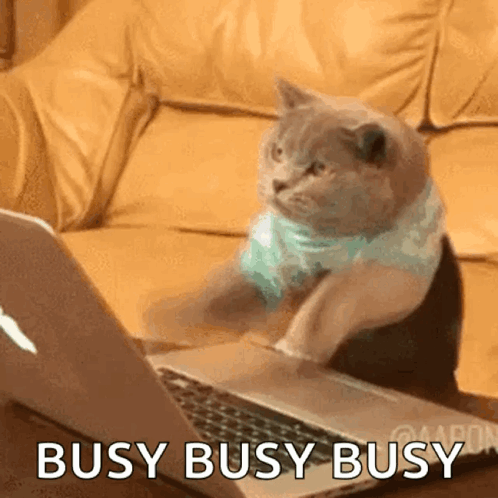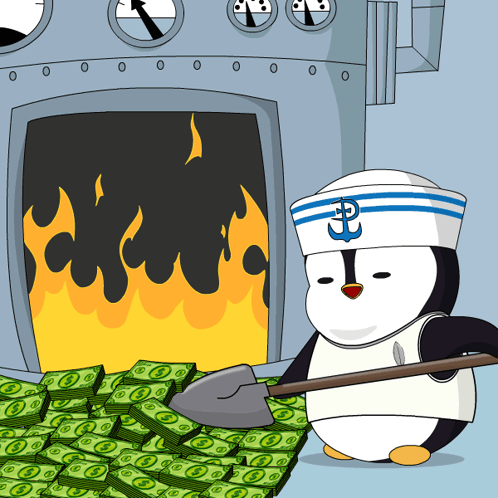7 roadblocks that keep agencies from scaling
Running an agency for 8 years, and before that as a solo freelancer, I’ve experienced the challenges that come with scaling. There were times when I felt stuck, unable to push the business to the next level.

Running an agency for 8 years, and before that as a solo freelancer, I’ve experienced the challenges that come with scaling. There were times when I felt stuck, unable to push the business to the next level. Along the way, I’ve made many mistakes, but each one has taught me a lesson about what it really takes to grow an agency.
If you feel like your agency has hit a ceiling, you’re not alone. There are common obstacles that often hold us back from scaling. In this post, I’m sharing seven common blockers I’ve encountered on the path to scaling our agency—along with insights on how to overcome them.
1) Saying “yes” to everything can kill your business
You’ve not yet built a system to properly qualify clients. You don’t say “no” to enough poor-fit prospects...

When you're in growth mode, it’s tempting to say “yes” to every opportunity that comes your way, especially if you're worried about keeping the pipeline full. But not all clients are a good fit for your agency. Taking on clients who don’t align with your strengths or who don’t respect your processes can drag your business down.
- Poor fit clients: Clients who don’t align with your niche, values, or expertise will strain your team and processes. You’ll spend too much time putting out fires and adjusting workflows to accommodate them.
- Lack of specialization: Trying to serve everyone means you dilute your brand and expertise. Instead of being known as the go-to agency for a specific industry or service, you become a generalist, which makes scaling harder.
The solution? Get clear on your agency’s ideal client profile and implement a strict qualification process that helps you filter out the wrong clients early on.
Early on, we chose to niche down and put a laser focus on Shopify, rather than providing services for every e-commerce platform.
"Essentialism: The Disciplined Pursuit of Less" by Greg McKeown
Essentialism is about learning how to do less but better so you can achieve the highest possible return on every precious moment of your life. Highly recommend it for everyone - also available at Audible.com, where I've "read" it.
2) Lack of time management skills
Time is one of the most precious resources in an agency. Without a solid framework for managing it, you’ll find yourself constantly busy, but not productive.

It’s easy to spend your day reacting to client demands, internal issues, and urgent tasks that crowd out strategic work. Without prioritizing, you’ll find that your business growth takes a backseat.
- Delegation: Many agency owners struggle to let go of smaller tasks, thinking they are the only ones who can do them. This leads to burnout and bottlenecks. It took many years for me to learn how to delegate.
- Time-blocking: Without intentional scheduling, strategic initiatives like business development, process building, and team development are often deprioritized.
- Boundaries: Not setting clear limits with clients—like replying to late-night emails or saying yes to last-minute tasks—can eat into your personal time and hurt your productivity in the long run."
Scaling your business starts with managing your time well. Focus on what matters most and trust your team to handle the rest."
Motion takes all of your projects and tasks, prioritizes and timeblocks them on your calendar, and dynamically optimizes your schedule dozens of times a day, all done automatically.
3) You are reinventing the wheel on similar projects - again and again...
You lack clear, repeatable processes. Without reliable systems, you’ll end up reinventing the wheel for every project, causing inefficiencies and inconsistent results.
- Process documentation: Failing to document workflows means every team member does things their way, leading to discrepancies and a lack of consistency. With a documented process, you can onboard new team members faster and ensure that every project follows the same structure.
- Hiring: Recruiting talent is key to scaling, but without a streamlined process for hiring, you’ll struggle to find the right people fast enough. Every hiring round feels chaotic because you’re relying on ad-hoc methods.
- Onboarding: When new hires come on board, they’re often left to figure things out for themselves, leading to mistakes and wasted time. A thorough onboarding process ensures they understand the tools, processes, and expectations from day one.
By creating repeatable processes, you can speed up delivery, improve quality, and allow your team to work more independently.
4) You are overdelivering - and not getting paid for it...
You are a pleaser, and you don’t know how to manage scope creep, giving away too many freebies. This results in the project dragging on without consequences, and before you know it, you are losing money on your fixed-price projects.
Overdelivering can feel like good customer service in the short term, but it quickly turns into a profit killer. Scope creep—where additional requests sneak into a project without an increase in budget—can tank your margins and create unrealistic expectations with clients.

- Scope management: Many agency owners are uncomfortable setting firm boundaries with clients because they fear losing them. But allowing constant scope changes without compensation teaches clients they can push for more without consequence.
- Project profitability: Fixed-price projects can easily lead to overdelivery. Without clear expectations and tight scope management from the start, you risk putting in more hours than planned, which eats into your profits."
To avoid overdelivering, establish clear project scopes, communicate boundaries, and use change orders when new requests arise.
5) Over-capacity
There are too many people within the agency, leading to 'dead hours' where you’re not billable. This is extremely costly and has also resulted in significant expenses for our agency.
When you scale too quickly without proper planning, you can end up with more team members than necessary, leading to idle time. This burns through cash and creates inefficiencies.
- Capacity planning: Overhiring is a common mistake when you anticipate growth, but scaling should be balanced with actual demand. Each new hire should have a clear role and workload.
- Financial insight: Without a strong financial system in place, you won’t have a clear picture of your agency’s financial health. This makes it harder to adjust hiring plans or manage cash flow effectively.
- Hiring and firing: Part of scaling is recognizing when to adjust the team size. Sometimes you need to make tough decisions, such as letting underperformers go or resizing the team to match your project load.
Avoid overcapacity by implementing financial systems that help you track billable hours versus team size and plan for scalable growth.
6) You’re not trusting your team
You haven’t learned to let go and trust your employees with key responsibilities. This results in you, as the owner, being essential for client engagements to succeed. You haven’t found a way to step away from day-to-day work.
If you find yourself micromanaging or being involved in every decision, you’ll quickly become the bottleneck for your agency’s growth. Trusting your team is essential for scaling because you, as the owner, need to step into a more strategic role.
- Delegation: If you don’t delegate effectively, you’ll find yourself buried in operational tasks that prevent you from focusing on big-picture growth. Your team needs autonomy to make decisions and move projects forward without you.
- Leadership development: Building a leadership team is crucial. If all decisions come through you, growth stalls. Developing strong leaders within your agency can take over client relationships and drive projects independently.
Trusting your team means letting go of some control and allowing them to lead in their areas of expertise.
7) You are not building relationships
You haven’t invested time or resources into growing existing client relationships and instead are always looking for the next new client who has a new project.
Chasing new business is essential, but neglecting your existing clients is a big mistake. Retaining clients and expanding the services you provide to them is often more cost-effective than constantly acquiring new ones.
- Build Strong Client Relationships
Happy clients stick around. When you invest in those relationships, you open the door to upselling and cross-selling, which can boost profits without the constant hustle for new projects. - Deliver Great Results and Stay Connected
When clients see great results and feel heard, they’re more likely to stick with you, refer others, or expand their work with your agency. - Dedicated Account Management
Assign someone to focus on nurturing client relationships. A dedicated account manager can ensure clients feel supported, appreciated, and motivated to continue working with you.
Scaling isn’t just about landing new clients; it’s about deepening the relationships with the ones you already have.